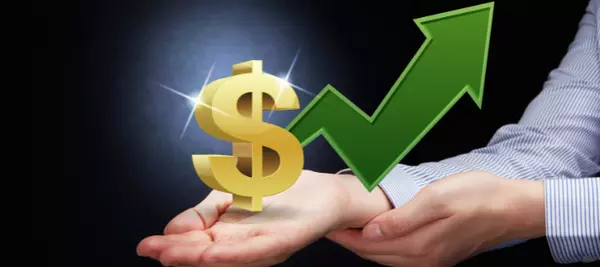What Is Mortgage Refinancing And When Should I Do It?
What Is Mortgage Refinancing And When Should I Do It?

The process of refinancing your mortgage allows you to get a new loan for the same property, but with lower monthly payments, better terms or both. It can also be done to take cash out of your home's equity. That is if you have sufficient equity in your home.
First, let's outline some terms.
Mortgage

Your mortgage is the amount of money that you borrow from a bank or financial institution to purchase real estate. Your mortgage provides the security for your loan in case you default on your payments.
Your monthly payment (or PITI) consists of three parts:
Principle - This is the part of your payment that goes towards reducing your overall loan balance. If you make a $100 payment and it has a $10 principle component, you will have reduced your loan by $10.
Interest - This is the interest charged to you by your lender for borrowing their money. It can be expressed as an annual percentage rate or APR.
Property Taxes - If applicable, these taxes are paid on behalf of the property your home sits on, typically to your local municipality.
Insurance - If applicable, these are monthly premiums you'll pay to protect your lender against a loss if you default on your loan. This can be very important because should you default on your mortgage, it can cost a lot of money for a bank or other financial institution to take possession and resell the property.
You probably know these terms well but it's a good thing to have a refresher before we dive into refinancing.
Here are the different types of mortgage:
Fixed-Rate Mortgage - This mortgage has a fixed interest rate and payment throughout the entire term of its repayment.
Adjustable-Rate Mortgage- These mortgages, also known as variable-rate mortgages, have an initial fixed rate for a while, at which point they become adjustable or variable. The payment can go up or down depending on how high or low market rates are at the time.
Balloon Payment Mortgage - This mortgage requires a large payment at the end of its term. The balloon payment is usually significantly higher than the monthly payments on the loan.
Interest Only Mortgage - Each month, you only pay interest on your loan and no principle towards your home's actual value. You will have to make a lump sum payment at the end of the term to pay off your home's entire value.
How do interest rates affect your mortgage?
Mortgage rates can affect your monthly payments in two ways:
The amount of money you borrow. A 2% rise or fall in interest rates will cause a $20,000 mortgage to go up or down by $400 per month. If you get a fixed-rate mortgage when interest rates are high, then you will be paying more in interest as part of your PITI, in a way raising the loan amount you have to pay.
Paying more or less interest will also affect how long you take to pay back the loan. If interest rates are high when you start repaying your loan, then it can take longer for you to pay off your whole PITI. Refinancing makes sense if you can lower your monthly payment and get out of your mortgage faster than planned.
What is home equity?
Home equity is the current market value of your home minus the mortgage amount left to pay. You might be wondering why it's important to know this. Well, refinancing your mortgage can allow you to take money out of home equity for many reasons.
You can also borrow money from your home equity through a home equity loan but that's a different topic.
What are some of the advantages of refinancing your mortgage?
The biggest advantage is that you will pay less interest over time on your new loan so you'll have a lower monthly mortgage payment. This can be extremely helpful if you are looking to consolidate debts or take out cash from your home's equity - also known as a cash-out refinance.
If you currently have an adjustable-rate mortgage (ARM), you can refinance your mortgage to a fixed-rate that can lock in your current interest rates for the rest of your loan term. You can also start paying lower mortgage interest rates by switching to an ARM from a fixed-rate loan that had very high-interest rates.
Your credit score will improve when you start making on-time payments each month, which makes it easier to qualify for future loans.
You might also be able to lower your monthly mortgage payment because some lenders will give you a lower interest rate if you agree to take out more money than your original loan (a cash-out refinancing).
What are some of the disadvantages of refinancing?
You might not be able to get as much money as you might expect because many lenders only allow customers to borrow up to 85% of the current market value of their home.
Should your financial situation worsen, you might not qualify for a loan because lenders will be looking at your debt-to-income ratio (how much money you make compared to how much debt you have) instead of simply reviewing your credit score.
With higher interest rates, then the cost of this new loan might end up being higher than your current mortgage. As your mortgage payments go up because of the new mortgage refinance taken at the wrong time, it can be hard to generate more home equity as there could be a higher loan to value ratio.
You'll have to pay closing costs, which are fees that the lender charges you to process and finalize your loan.
Refinancing a mortgage is also something that can cost money, adding costs that you need to recuperate. If your mortgage term is almost over, you could save money by not refinancing and just finishing up your monthly payments.
You can refinance once you have equity in your home, but should you?

That means that you have not missed payments on your existing mortgage. To build equity, you have to make sure your monthly budget accommodates your mortgage payments and that you are keeping track of your payments - something that will help your credit report in the future as well.
When you can start to refinance your existing loan depends on your specific situation. Usually, it takes about two months to complete the refinancing process.
Still, mortgage refinancing is not something you want to take lightly. A lower monthly payment sounds like a good idea but you also need to take into account the specifics of your loan terms, your remaining principal balance, and more.
Given how a single percentage point can drastically affect how much you will pay over the years, deciding to refinance is one of the biggest financial decisions you can make.
However, many homeowners take advantage of a lower interest rate to make some beneficial changes to the credit product they need for their house. Monthly savings from paying interest that is more closely aligned to the current market situation can be life-changing.
Whether you are unsatisfied with your original mortgage or see interest rates drop enough to make a difference, you should get in touch with your mortgage lenders to see how much good you could get out of your home loans.
View All Homes For Sale in Greater Vancouver >>>
About Search Home Listings
SearchHomeListings.ca has simplified the home buying and selling process by giving you superior tools with up-to-the-minute information including active homes for sale, sold homes, market reports, and a home valuation tool! We have a team of success managers on standby to support you with setting up your saved home search and agents ready to take you out on a tour. Tap into our industry experts from inspectors, to contractors to interior designers to provide you with the best prices and service possible. Everyone attached to our website has been rigorously vetted and is made up of caring, knowledgeable professionals that work tirelessly to help you to make your home buying experience as stress-free as possible. Contact us today to see how we can help!
Sites We Follow
Categories
Recent Posts










